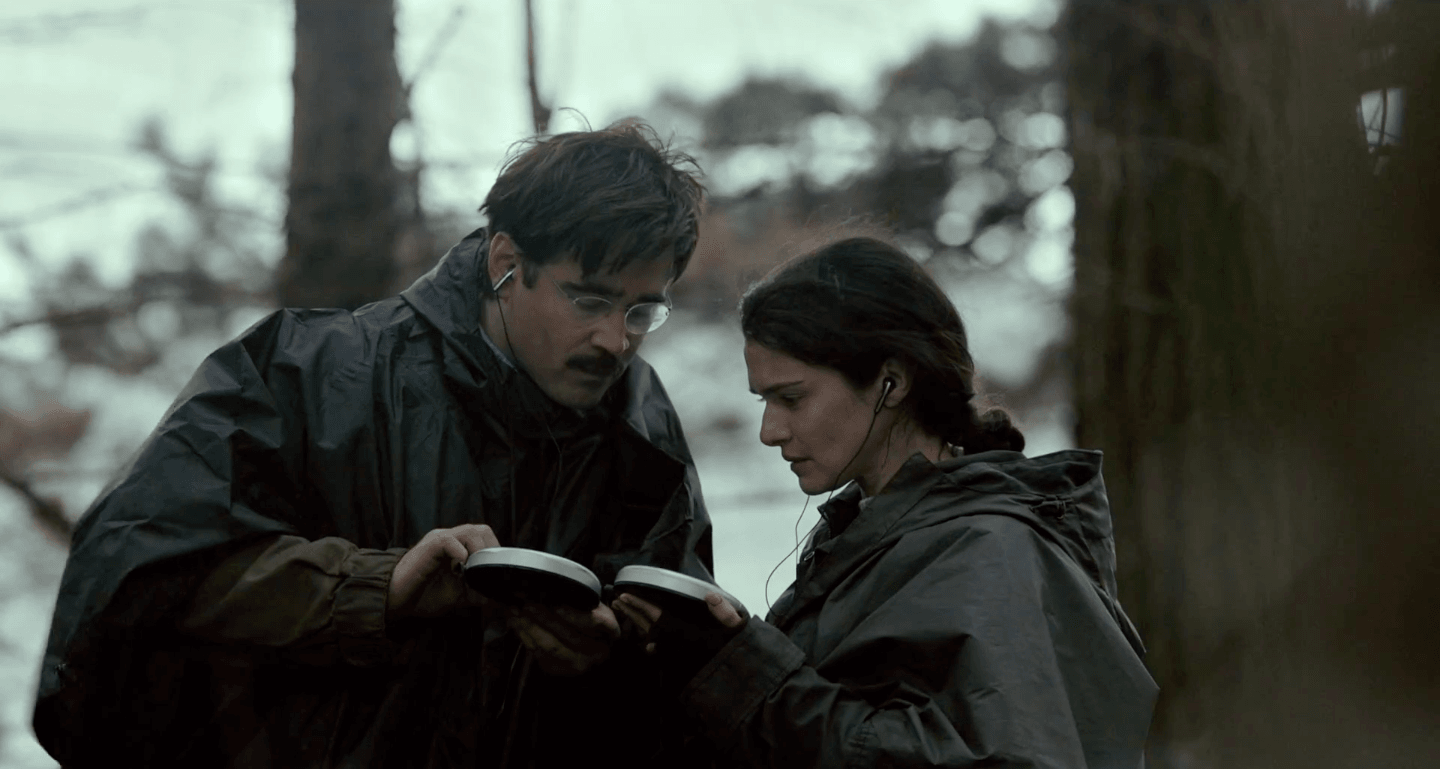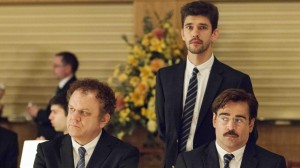
In a sea of Summer remakes, reboots, re-imaginings, and any other re-s you can think of – not to mention the stereotypical shoot-em-up action and buddy-buddy comedy fare – ‘The Lobster’ stands out as a breath of fresh air, a cinematic beacon in the night. It’s quirky and unique – definitely a “thinker” type of film, with an ending that may leave you with more questions than answers; but if you’re on the hunt for something different, then this IS the droid you’re looking for.
‘The Lobster’ presents as a science fiction film with most of the sci-fi doled out extremely subtly and smoothly woven into the fabric of the plot. Set either in the indeterminate future or on an alternate Earth, society is presented as mostly “present day” with one major change: humans are required by law to be in a relationship with another person. If you’re not connected to someone else – either by your choice when you become an adult or if your situation changes, i.e. divorce, death, etc. – you are sent to a “coupling Hotel” where singles are given 45 days to meet someone new and fall in love. If you can’t make the magic happen in your given window, then you are turned into the animal of your choice and either released into the wild or into your family’s care. Singles at the Hotel can earn extra days to continue to seek romance by successfully tranquilizing runaway singles during the daily scheduled hunts.
At the onset of the film, we meet David (Colin Farrell), an architect whose wife is leaving him for another man. David – with his brother-turned-dog in tow – head to the Hotel and goes through the admission process, which, like most government programs that our real-life general populace have come to accept as something we just have to do, is rigorous and invasive: new arrivals are stripped to their underwear and spend their first 24 hours with one hand tied behind their backs, “to remind you how much easier things are with a pair instead of a single.” Thus begins David’s Hotel experience, which goes on to include terrible skits about the dangers of being alone as performed by the hotel’s staff, social-interaction dances that seem more awkward than a grade school formal, and of course the daily hunts.
 The Hotel itself is full of odd characters that compound the quirky feel of ‘The Lobster’ exponentially. There’s John C. Reilly playing a man with a lisp and a seemingly chronic masturbation problem (something that is so strictly forbidden at the Hotel that the maids include a short session of grinding on the residents as part of the daily turndown service); Ben Whishaw as a gent with a permanent limp that is so desperate to find a partner that he starts to intentionally bash his nose on every hard surface he can find simply to have something in common with a cute resident that suffers from nosebleeds; and Angeliki Papoulia as a particularly heartless woman that David latches onto as his opportunity to escape the hotel via pairing.
The Hotel itself is full of odd characters that compound the quirky feel of ‘The Lobster’ exponentially. There’s John C. Reilly playing a man with a lisp and a seemingly chronic masturbation problem (something that is so strictly forbidden at the Hotel that the maids include a short session of grinding on the residents as part of the daily turndown service); Ben Whishaw as a gent with a permanent limp that is so desperate to find a partner that he starts to intentionally bash his nose on every hard surface he can find simply to have something in common with a cute resident that suffers from nosebleeds; and Angeliki Papoulia as a particularly heartless woman that David latches onto as his opportunity to escape the hotel via pairing.
When his faked romance with “Heartless Woman” (many of the characters are referenced by their characteristics instead of their actual names in the credits) takes a rather disturbing nosedive, David does the only thing he can think to do: he flees the Hotel and eventually meets up with the group of escaped singles. In an odd twist of fate, David finds that this group, under the fanatical leadership of “Loner Leader” (Léa Seydoux), has just as many rules as the Hotel did, including a very strict no romance policy. David, of course, finds himself attracted to a member of the group, “Short Sighted Woman” (Rachel Weisz), and when the two decide that they want to be together, it’s up to them to find a way out of the group and back into civilization.
The film forces you as the viewer to make educated guesses about some of the things you are seeing and how some of the rationalizations of this world play out. While relatively glossed-over (intentionally so) in terms of the sci-fi tech explanation, we are told that the transformation from human to animal is a secretive process that takes place inside a heavily-secured Transformation Room; we are never expressly shown the process, however, which opens the door for the possibility that it doesn’t really happen at all. It’s never expressly stated as such in the film, but I got the vibe that there was meant to be some doubt about whether humans really do transform into animals or if they are merely killed and replaced with the beast of choice. As the Hotel Manager explains to David upon his arrival, most people aren’t creative thinkers and simply choose to be turned into dogs, which has given the world an overpopulation of mutts and pushed other species to the brink of extinction. During the scenes of the escaped singles in the forest surrounding the Hotel, though, viewers see peacocks, camels, and other out-of-their-element creatures casually wandering through the trees, lending some credibility to the reality of the Transformation process.
When it’s all said and done, and you’ve had time to think long and hard about the, shall we say, interesting ending that the audience is given, ‘The Lobster’ performs admirably as a dark comedy with a signature flavor of the UK/international dry wit that American audiences have come to know. Add a splash of sci-fi undertones and this film reminds me of something akin to an ‘Eternal Sunshine of the Spotless Mind’ for a new generation. Even making that comparison seems unfair, because almost assuredly, ‘The Lobster’ is the most unique film you will see all year.
Tony Schaab made the mistake of watching “Judge Dredd” right before going to volunteer at his local animal shelter, so naturally he spent his entire shift yelling “I am the PAW!” at all the little puppies and kitties. A lover of most things sci-fi and horror, Tony is an author by day and a DJ by night. Come hang out with Tony on Facebook and Twitter to hear him spew semi-funny nonsense and get your opportunity to finally put him in his place.
